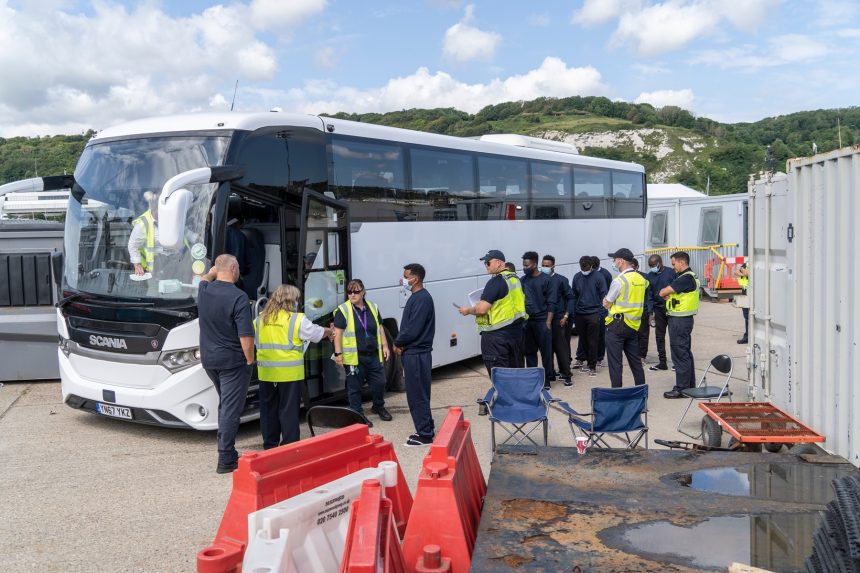The Clandestine Entrant Civil Penalty Scheme, which imposes penalties on operators and drivers that do not secure their vehicles to prevent people using them to enter the UK, must be reformed, RHA has said.
What the trade body describes as “widespread concern” exists that the scheme is not wholly effective and is leading to operators being punished “despite making all reasonable efforts to secure their vehicles,” according to Managing Director Richard Smith.
Mr Smith says that RHA has heard from numerous members of that happening, although it supports “all reasonable measures to deter clandestine entrants as well as penalise those drivers and operators who are not taking the necessary steps to secure their vehicles.”
However, Mr Smith believes that as the tactics of clandestine entrants and the gangs that organise them evolve, it is vital for the scheme to do the same “so operators and drivers are not unfairly punished.”
RHA has contributed to a review of the Border Force approach to clandestine entrants that was launched in mid-2024. Nothing more has been said publicly about that work, however.
The trade body wants the approach to be in line with the evolving immigration situation to ensure that both the Clandestine Entrant Civil Penalty Scheme and entry checklist “are fit for purpose.” That should account for what RHA says are the “advanced methods” used by criminal gangs to conceal individuals on vehicles.
It is also calling for better training for Border Force officials on vehicle security to ensure that they understand those methods, and clearer avenues to seek assistance from French and UK border officials so that no driver in real need of assistance to deal with a clandestine entrant is punished.
As the final part of what RHA is seeking, it wants “a clear declaration that drivers are not expected to personally deal with potential clandestine entrants on safety grounds,” and provision of additional guidance and publicity on the steps a driver should take in those circumstances.
In July 2024, coach operators carrying out international journeys were cautioned by a transport law specialist that they must ensure care is taken and all procedures are followed to avoid the carriage of clandestine entrants on vehicles when returning to the UK.
That followed a Court of Appeal decision where it was upheld that although an LGV driver and operator had complied with all necessary precautions and completed the required checklist, those actions alone do not justify no penalty being imposed.
Eight clandestine entrants had been found on the vehicle concerned in the UK Control Zone in Calais. While the maximum potential penalty against the operator was discounted, it was still £36,000.



























